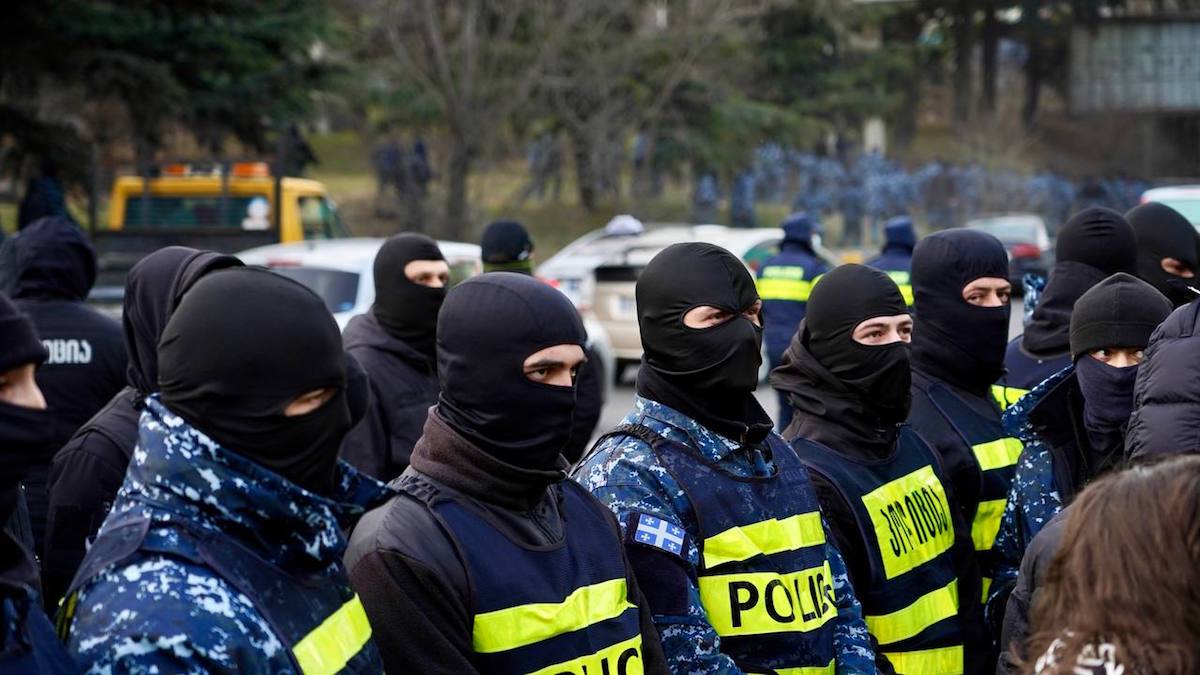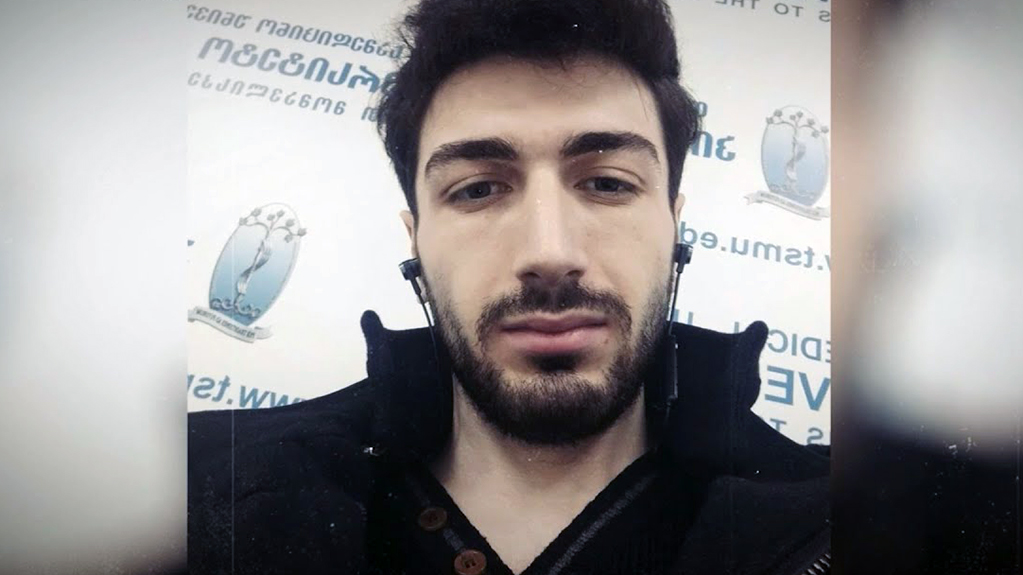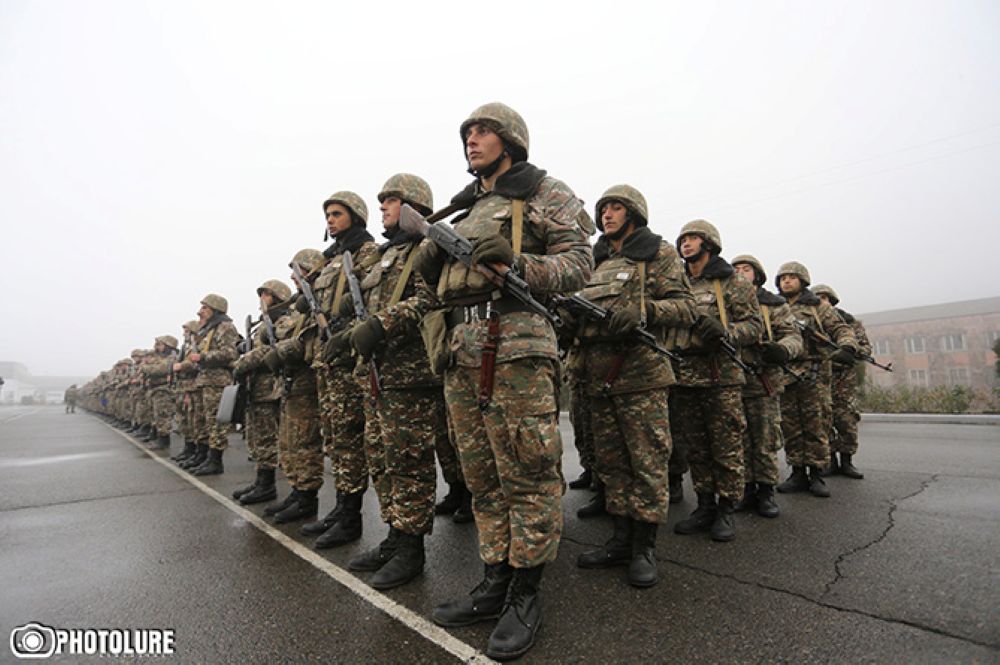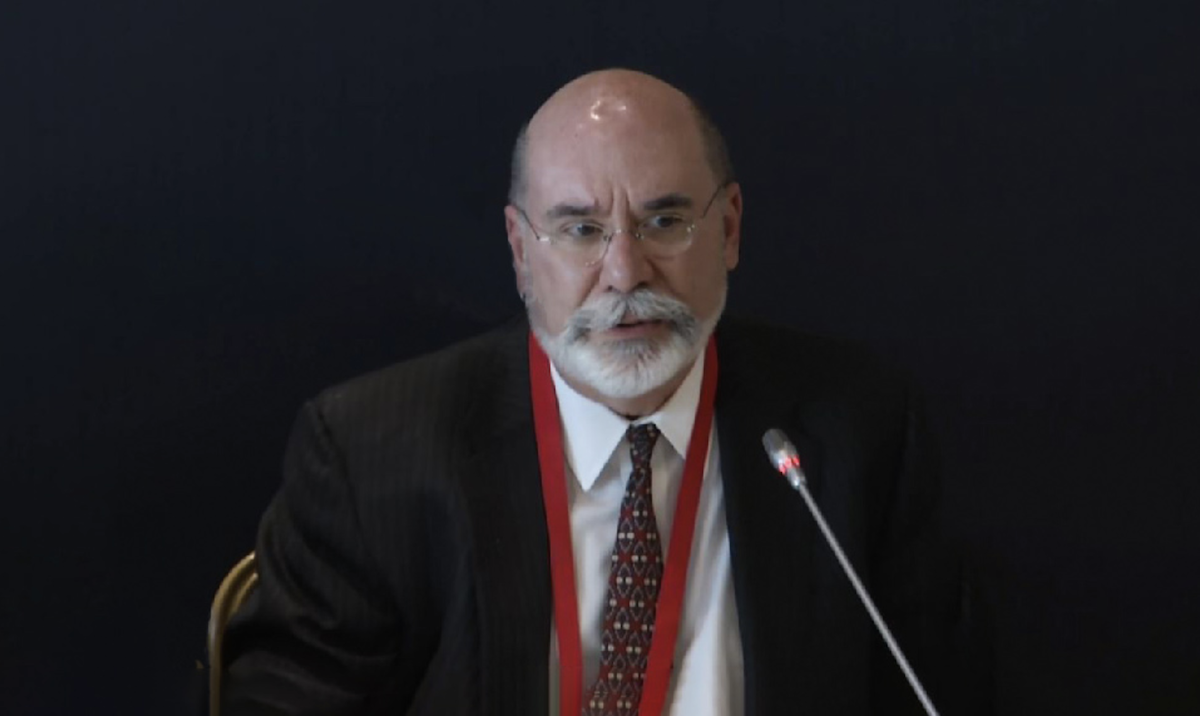Georgian Centre for Social Justice demands investigation into police violence on 2 February
Georgian NGO condemns police violence
The Georgian non-governmental organization Centre for Social Justice has urged the General Prosecutor’s Office of Georgia and the Special Investigation Service to immediately launch an investigation into cases of police violence.
The organization issued a statement in response to the police violence against peaceful demonstrators during the 2 February protest near Tbilisi Mall.
The Centre for Social Justice is also urging the Georgian Interior Ministry to issue a statement on the grounds for the detention of demonstrators and to immediately release those arrested.
According to the organization, in addition to arrests, police violence also took place during the protest, with footage circulating on social media.
● Arrests and violence against demonstrators, including women, continued even after protesters left the area near Tbilisi Mall and moved towards Rustaveli Avenue. Police unlawfully detained more than 50 protesters while they were marching along the embankment;
● In several cases, video footage shows groups of law enforcement officers chasing protesters. One such video captures several police officers standing in a circle and striking a person on the head;
● A widely shared video allegedly shows police officers beating detainees inside a white van. Activists reported similar instances of torture and inhumane treatment by law enforcement in December 2024;
● Footage published by Pirveli shows a detained protester being taken to the head of the Special Tasks Department of the Interior Ministry, Zviad Kharazishvili, who then used physical violence against the citizen. Other footage shows him shouting at protesters from a car using a loudspeaker. Another widely circulated video captures Kharazishvili instructing special forces officers not to use physical force against citizens when cameras are present;
● In some cases, police officers insulted protesters, threatened them, and detained them without reason;
● Passing cars signaled in solidarity with the protest. In one such case, footage appears to show police surrounding a vehicle, attempting to damage it, and trying to pull the driver out;
● Police officers targeted female activists and politicians, subjecting them to discriminatory, degrading, and offensive remarks;
● After his release from custody, United National Movement leader Nika Melia stated that a high-ranking police officer used violence against him inside the police station, kicking him while he was handcuffed.
“It is necessary to once again emphasize that masked law enforcement officers, who cannot even be identified—an egregious violation of human rights standards—continue to act with complete impunity. So far, no one has been held accountable for the hundreds of cases of systematic torture and inhumane treatment that have occurred since the protests began on 28 November. Moreover, there is still no information about any perpetrators being identified or suspended from duty,” the Centre for Social Justice said in its statement.
On 2 February at 16:00, a protest was scheduled to take place at Tbilisi Mall. On 31 January, the day after the rally was announced, Prime Minister Irakli Kobakhidze from Georgian Dream issued a special decree.
According to the document, international highways were added to the list of strategic sites. The entry roads to Tbilisi, where Tbilisi Mall is located, were also classified as international roads under Resolution No. 407.
The decree followed active discussions within the opposition about shifting pro-European protests to highways. Demonstrators were considering various forms of protest, including road blockades, after a highway blockade in Serbia on 27 January led to the resignation of the country’s prime minister.
As a result, during the 2 February protest, police arrested dozens of citizens and used force against them. A total of 31 people were detained, five of whom suffered concussions.
The Georgian Young Lawyers’ Association has appealed to Prosecutor General Giorgi Gabitashvili, demanding a criminal case be opened against the head of the Special Tasks Department of the Interior Ministry, Zviad Kharazishvili, and calling for his suspension.
Additionally, Ombudsman Levan Ioseliani issued a statement expressing concern over police violence against citizens.
In his statement, Ioseliani condemned all forms of unlawful actions by police officers, particularly acts of ill-treatment.
The ombudsman called on the Special Investigation Service to immediately launch an investigation into cases of violence and bring those responsible to justice. He also urged the Interior Ministry’s General Inspection to conduct an internal investigation into cases of verbal abuse and unethical behavior by police officers.




















